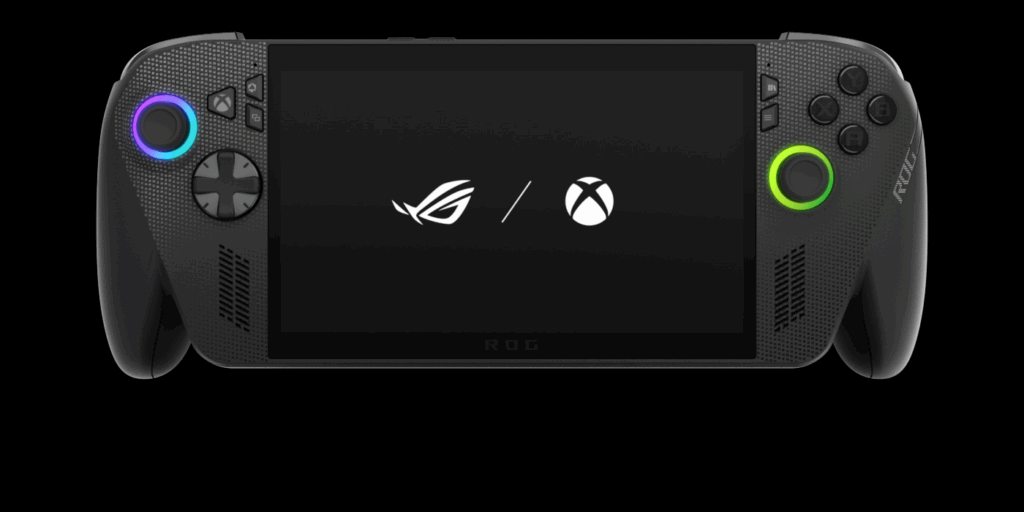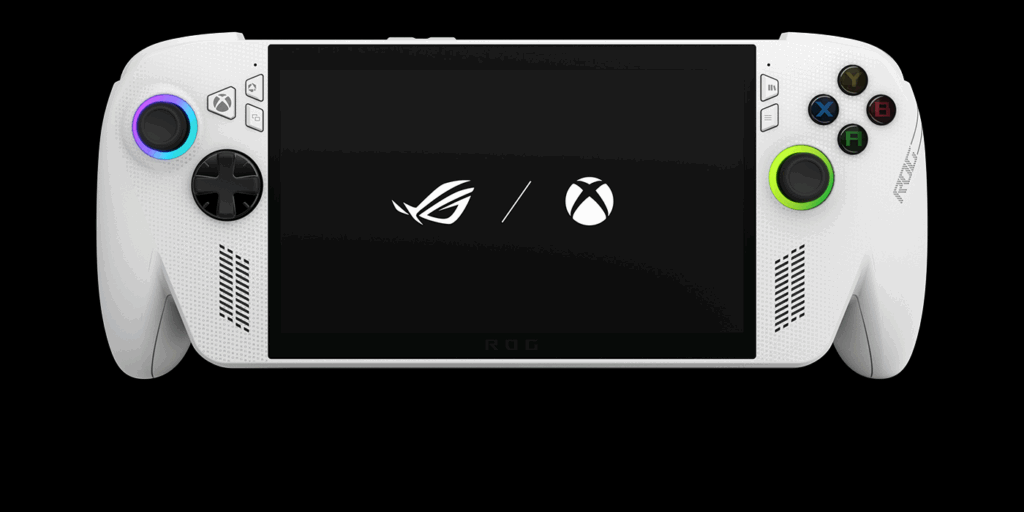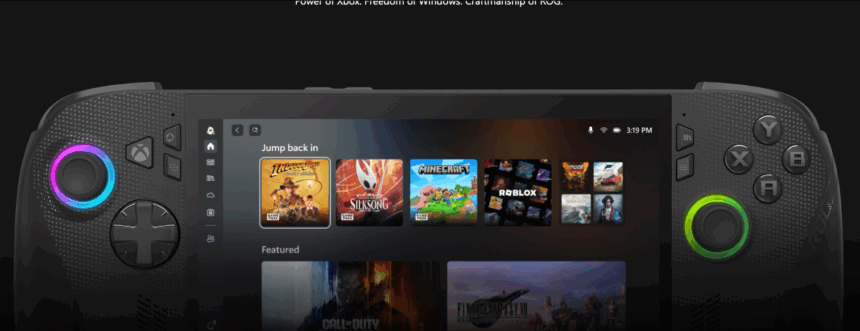The Wait Ends for Xbox in Your Hands
After nearly two decades of rumors, Microsoft finally enters the handheld console market — with an unexpected ally. The new ROG Xbox Ally, co-developed with Asus under the Republic of Gamers brand, merges console power and PC versatility into one sleek, portable device.
The hybrid system redefines portable gaming. It plays Xbox Game Pass titles natively while running full Windows 11. Meaning, players access the vast ecosystem of PC games they already own. The result is beyond a gaming handheld — it’s a fully-fledged portable computer built to handle AAA performance.
What’s Happening & Why This Matters
Microsoft’s Handheld Dream Becomes Reality
The ROG Xbox Ally officially arrives on 16 October 2025, after its reveal during the Xbox Games Showcase earlier in June. Available for preorder since late September, the standard version sells for €599 (US$599), while the more powerful ROG Xbox Ally X costs €899 (US$999).
Known internally as Project Kennan, the device replaces Microsoft’s canceled in-house handheld and introduces a new design philosophy: Windows-powered portability optimized for Xbox gamers. Images leaked through the FCC earlier this year sparked early excitement, but the official reveal confirmed something bigger — a complete ecosystem bridging console and PC gaming.
Each model uses an AMD Ryzen Z2 APU, designed exclusively for handheld systems. The base version features the Ryzen Z2 A, a quad-core Zen 2 chip with eight RDNA 2 graphics cores. The high-end Ally X model upgrades to the Ryzen AI Z2 Extreme, an octa-core Zen 5 processor with sixteen RDNA 3.5 graphics cores and a built-in Neural Processing Unit (NPU) for AI-enhanced tasks.


Hardware Powerhouse with Console Soul
The ROG Xbox Ally and Ally X feature 7-inch Full HD IPS displays with 120Hz refresh rates, variable refresh, and Gorilla Glass Victus protection. Despite skipping OLED, Asus prioritizes battery endurance and thermal efficiency, noting the IPS display still delivers deep color, crisp contrast, and fast response times.
Battery life varies between 60Wh (standard model) and 80Wh (Ally X), enabling extended play sessions without constant charging. Both models include LPDDR5 memory — 16GB for the base unit and 24GB for the X — plus high-speed M.2 SSD storage (512GB and 1TB respectively).
Connectivity covers Wi-Fi 6E, Bluetooth 5.4, USB-C with DisplayPort, Thunderbolt 4, and microSD expansion, transforming the Ally into a full workstation when docked.
The control layout mirrors the Xbox controller’s tactile precision: ABXY buttons, dual analog sticks, impulse triggers, assignable back buttons, haptic feedback, and a 6-axis motion sensor. Every input feels native, natural, and immediate — just as any Xbox device should.
Windows Meets Xbox
For the first time, a Windows-based device boots directly into a new Xbox Mode — bypassing the full Windows shell to save memory and power. This custom interface provides a true console-like experience with minimal system overhead. Microsoft reports a two-thirds reduction in idle power use and saves up to 2GB of active memory during gameplay.
This feature remains exclusive to Asus ROG devices through 2025, but will extend to other handhelds in 2026. The interface also introduces improved controller navigation, Game Bar enhancements, and a redesigned task switcher optimized for handheld control.
Gamers can access Xbox Game Pass with one button press. The integration feels natural — launching Halo Infinite, Gears 5, or Fable Anniversary instantly from the side-mounted Xbox menu. The Ally also supports other gaming platforms like Steam, Epic Games, and EA Play, letting users merge their entire PC library under one portable roof.

The Real-World Experience
Early testers describe the ROG Xbox Ally as a handheld Xbox with a PC brain. It runs nearly all modern games natively — from Hades II to Hollow Knight: Silksong — while streaming graphically intense titles like Call of Duty: Modern Warfare 3 through Xbox Cloud Gaming.
Performance tests show smooth gameplay with minimal frame drops across most Game Pass titles. More demanding games such as Baldur’s Gate 3 require minor graphics tuning but maintain stable frame rates once optimized — a familiar trade-off for PC enthusiasts.
The Ally’s dual identity creates both freedom and friction. Windows 11 flexibility means you can tinker, mod, and multitask — but also manage updates, drivers, and compatibility quirks. Players familiar with PC gaming accept this balance, while console purists may find it less seamless than a Switch or PlayStation Portal.
Competing in a Crowded Arena
The handheld gaming market already thrives with competition. Nintendo dominates with the Switch 2, Sony delivers remote streaming through the PlayStation Portal, and Valve holds a loyal base with the Steam Deck.
But the ROG Xbox Ally’s unique value lies in its dual DNA — a true PC gaming experience packaged like a console. This approach expands Microsoft’s ecosystem beyond living rooms into backpacks and carry-on bags.
The Xbox brand, long synonymous with stationary hardware, now travels everywhere. Gamers no longer rely on fixed setups; they bring full Windows functionality and Game Pass access on the move.
TF Summary: What’s Next
The ROG Xbox Ally changes how Xbox fits into gaming culture. The partnership between Microsoft and Asus attempts to redefine the handheld category. It merges console comfort with PC-level power. The hardware confirms that portable gaming does not mean compromise.
MY FORECAST: The next frontier lies in software refinement — optimizing Windows for handheld control, expanding Xbox Mode features, and deepening AI integration through AMD’s neural cores. If Microsoft continues the partnership, the ROG Xbox Ally is more than a device, but rather a template for gaming mobility.
— Text-to-Speech (TTS) provided by gspeech


